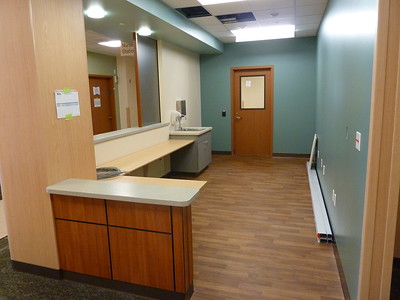A new plan introduced last week by a consortium of higher education and hospital association proposes to allow all 28 Michigan community colleges to confer bachelor’s degrees in nursing. The plan will attempt to solve the nursing shortage in Michigan.
I wrote about this earlier this year. The problem with flooding the “market” with nursing students is the lack of clinical space. Michigan has a grand total of 185 hospitals of all kinds, not all of which make clinical opportunities available. Nursing students must complete clinical rotations to meet the requirements of a nursing degree. Students in clinical rotations require 1:1 supervision by a registered nurse, and not all registered nurses supervise students.
Getting clinical placements for nursing students (regardless of where their nursing schools are) is hard. Adding more nursing students to the mix will not increase the odds of getting an appropriate clinical placement, nor will it increase the number of clinical placements available.
This is not a small problem. The clinical portion of a nursing education program is central to the program’s accreditation. Failure to maintain adequate clinical opportunities jeopardizes the program’s accreditation. Loss of accreditation means that the graduates of an unaccredited program cannot work as nurses, sit for a licensing exam, or transfer their credits to another nursing program. They must literally start over.
I mentioned in previous writings that I have heard very credible stories of Washtenaw Community College nursing students not receiving appropriate clinical placements. It would be unfortunate to repeat this at other community colleges across the state.
Is there really a nursing shortage?
Here’s the other problem with the “nursing shortage” line. The number of licensed registered nurses in Michigan has increased by nearly 41% since 2004. Registered nursing licensure here has increased every single year in that time save once – in 2015 – when the number of registered nurses in Michigan dropped by 0.00015%. (21 nurses). In 2021, Michigan had 164,623 registered nurses.
The number of Licensed Practical Nurses is dropping. Many healthcare providers won’t hire LPNs because their license limits the care they can provide. Additionally, studies have shown that better-trained nurses deliver better patient outcomes.
The current plan introduced this week seeks $2M from the legislature for each community college in the state. This grant is supposed to offset the cost of expanding 2-year nursing programs to BSN programs. There’s nothing wrong with wanting to expand the number of nurses, but certain bottlenecks are built into the healthcare system that no legislature grant is going to fix.
Our healthcare system has not grown with our population. The healthcare education system relies heavily on our critically undersized healthcare system. To expand the capacity of the healthcare system, we need to expand healthcare education system. Ironically, that means we must cram even more students through a badly undersized pipeline that’s already at a breaking point due to the pandemic.
No matter which way this goes, it isn’t going to be pretty. The solution is far more complicated than just training more nurses. If it were that simple, that would already have been done.
The Legislature should reject this money-grab and focus on real solutions that expand the capacity of the healthcare system in Michigan safely and sanely.
Photo Credit: Craig Howell , via Flickr















